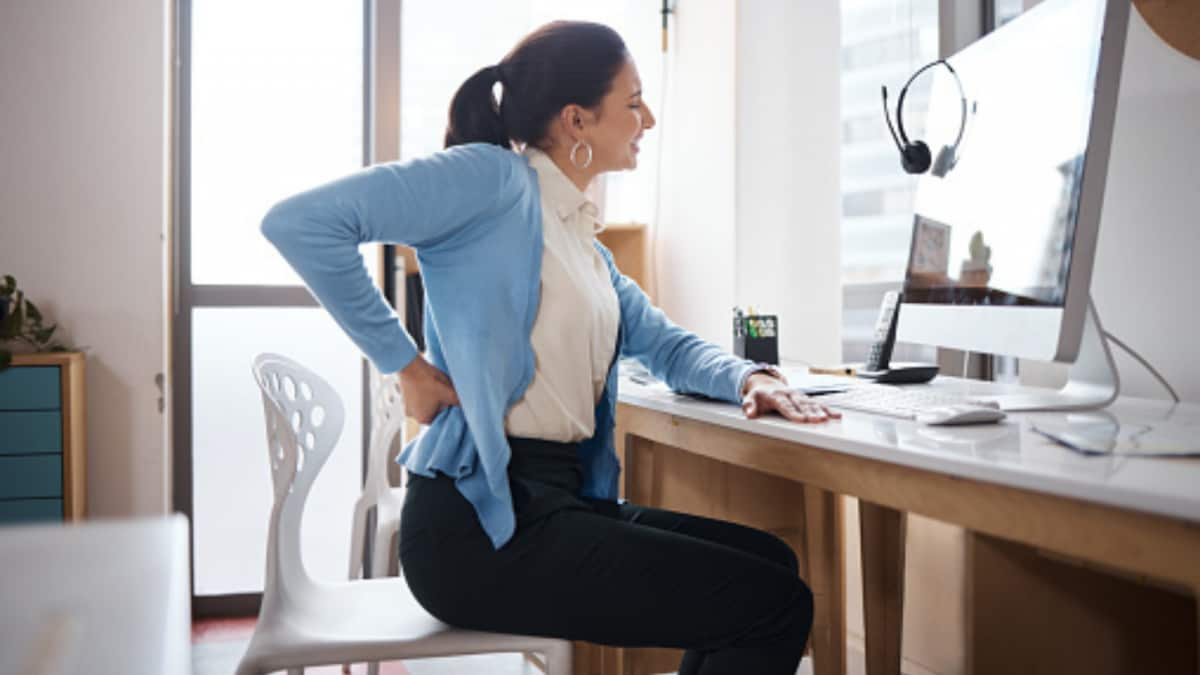Last Updated:
As estrogen levels decline with age, women face a higher risk of osteoporosis and fractures.

Women over 30 face early bone loss and osteoporosis risk.
When it comes to maintaining healthy bones in women, resistance (weigh) training (yes you read that correctly) is one of the best things that you can do. Dr. Harsha G N
Senior Consultant – Orthopedics, Aster whitefield Hospitals shares the scoop on why and how weight training helps, and what the science says.
What’s the problem with bones with women?
By mid-life, many women find themselves in a perfect storm of bone health – (1) estrogen levels decline when menopause begins (2) estrogen helps protect women from increased bone health (3) women can lose approximately ~20 % of bone density during the 5 years after menopause. This increased level of bone health gives us a higher percentage of bone health that easily leads to fractures, especially in the hip, spine and wrist. And fractures can be problematic with serious effects on your mobility, your independence and even your death. So: what can we do? And one of the best tools in our toolbox is weight training.
How does weight training help the bones?
Think of your bones as living tissue that responds to force. When muscles pull on bones, or when bone handles load (as in lifting weights), they get an “exercise signal” that triggers bone-forming cells (osteoblasts) to lay down more bone.
Here are the key mechanisms:
• Mechanical strain. Combatting gravity is a strain–that bones sense. Strain promotes bone formation.
• Muscle-bone coupling. If you’re stronger there will be more force put through bones → bone health will improve.
• Prevention of disuse and fall risk. When women lose muscle and strength it results in increased falls and less loading of bones. Weight training can help in maintaining muscle, balance and coordination which can indirectly lead to lower fractures.
• Bone markers are responsive. For example, in a cohort of postmenopausal women with low bone mass after 3 months of weight-bearing + resistance training, bone formation markers (P1NP) and the number of circulating osteogenic cells increased.
What does the research say?
A current research study of 17 randomized controlled trials (≈690 women) found that weight training strengthened bone mineral density (BMD) in the spine, neck and the entire hip. Another analysis of 24 trials found that combining resistance training with jumping, skipping with the weight was much more effective than resistance alone, for the neck and spine. There’s also data in younger women: in a randomized study of premenopausal women (aged ~28–39) doing resistance exercise over 18 months, BMD improved in the exercise group. And from a practical/clinical trial: in postmenopausal women without hormone replacement therapy, 24 weeks of strength training preserved BMD at lumbar spine and femoral neck compared to controls. Finally, one news report summarized health data: “Increasing bone strength by just 3% can slash hip-fracture risk by ~46%”, so even modest gains matter.
What’s the practical takeaway for women?
Here are some doctor-approved points:
• Start before major bone loss. If you’re entering perimenopause or early postmenopause, now is a prime time.
• For optimal benefit: resistance (weight) training at higher intensity (≥ 70% 1RM) and 3 times/week seemed best in meta-analysis.
• Use multi-component training: resistance + weight-bearing (impact) + balance work. Studies that included jumps/impact had greater effect.
• But: everyday light activity (walking, chores) alone isn’t enough to offset menopausal bone loss. Always include adequate calcium, vitamin D, good nutrition, and check for other osteoporosis risk factors (family history, smoking, medication effects). Exercise is one pillar, not the only one.
A bit of “real talk”
Many women shy away from strength training because of myths: “My bones are too weak,” “I’ll bulk up,” or “That’s for men.” Truth is: strength training for bone health is not about bulking, it’s about maintaining structure, mobility, independence and preventing serious fractures later on. And yes, your bones can get stronger, or at least lose density more slowly, if you engage actively.
As one British news piece said, “Muscles are key to osteoporosis prevention… low muscle mass is the first sign of low bone density.”
If you are not sure where to start: See a physiotherapist or qualified trainer who is knowledgeable in bone health, begin with form/technique, make RR/ progression slow, don’t do major lifts until you are safe with the basics. 2 sessions/week of resistance + impact can still be beneficial.
Final word from your bone-doc
Weight lifting is not just a choice; it is an intentional choice. Not because we are focused on “aesthetics” or just “fitness”, but because of what it represents for your individual bones, or for future mobility, or future independence. Consider your bones as an investment: all the deliberate loading they receive now will only strengthen your return later. Keep in mind, even small improvements can bring about all the difference; if you improve your bone strength by 3% your risk of fracture will reduce dramatically. So lift weights, do not fight against the resistance of weight training, and give your skeleton something to grip. Your future self will be grateful.

Swati Chaturvedi, a seasoned media and journalism aficionado with over 10 years of expertise, is not just a storyteller; she’s a weaver of wit and wisdom in the digital landscape. As a key figure in News18 Engl…Read More
Swati Chaturvedi, a seasoned media and journalism aficionado with over 10 years of expertise, is not just a storyteller; she’s a weaver of wit and wisdom in the digital landscape. As a key figure in News18 Engl… Read More
October 24, 2025, 20:06 IST






